Smacking children in Wales becomes illegal
- Published
- comments
What do parents think of Wales' smacking ban?
Parents smacking their children will be illegal in Wales from Monday.
First Minister Mark Drakeford said it was a "historic" day for children as Wales becomes the second UK nation to ban physical punishment.
The legal defence of reasonable punishment has been removed, so anyone who smacks a child in their care could be arrested and prosecuted for assault.
Critics claim the new law, external was pushed through "by those who think they know better than parents".
Jersey was the first part of the British Isles to ban smacking in April 2020 before Scotland became the first UK nation to make it illegal in November 2020.
Sweden became the first country in the world to ban physical punishment of children in 1979 and it is now illegal in 63 nations around the world, external.
The Welsh government said it was a "historic moment for children and their rights in Wales" and meant children would have the same rights as adults.
In a survey of 3,000 adults in England, the NSPCC found 64% think it is also time to change the law, external there and ban smacking, while 68% said it is not acceptable.
What is physical punishment?
Ministers in Cardiff said they wanted to give children "the best start in life" and the new law means people will be committing a crime if they smack, hit, slap or shake a child in their care.
The government said it "wasn't possible to give a set list of what makes up physical punishment" because it could be "anything where a child is punished using physical force".
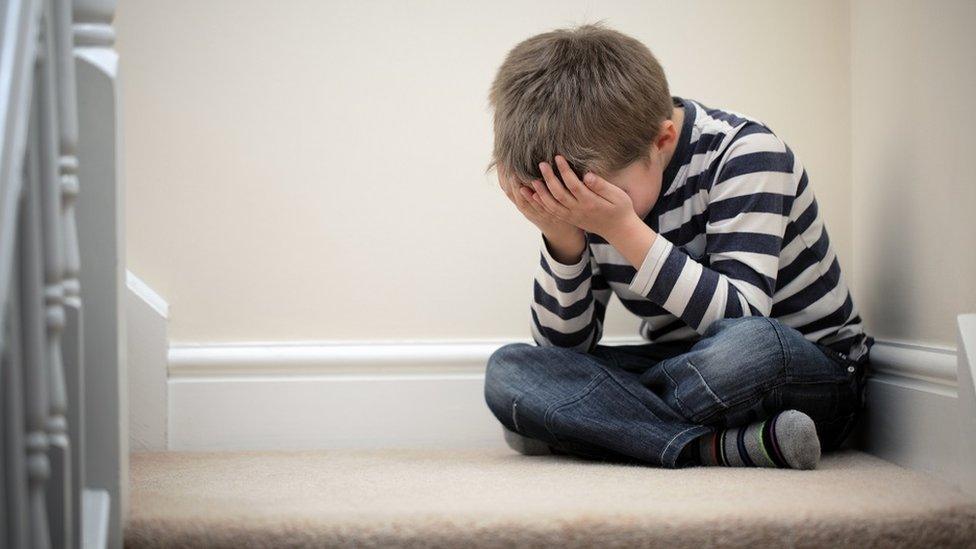
Children in Wales have the same rights as adults from Monday
The new law will apply to parents or anyone who is responsible for a child while the parents are absent - and apply to all visitors to Wales.
Physical punishment is already illegal in schools, children's homes, local authority foster care homes and childcare settings.
What's the difference between the old and new law?
Hitting a child is common assault but if a parent or someone with parental responsibility was charged with common assault against a child before Monday, they could have attempted to use the defence of reasonable punishment.
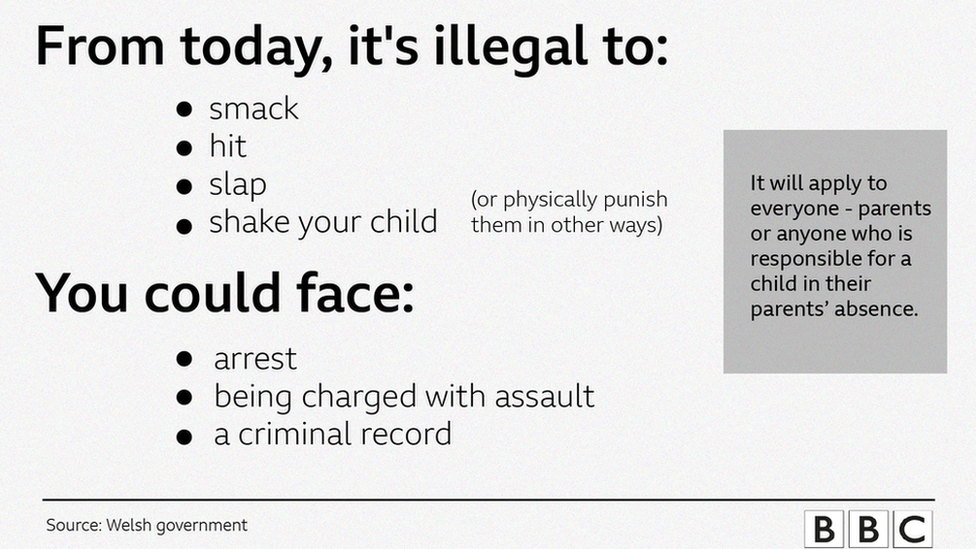
The defence of reasonable punishment against a child has been removed in Wales

But from Monday, that defence is no longer available in Wales so anyone who physically punishes a child will be breaking the law and could get a criminal record.
People who see a child being physically punished have been advised by Welsh government to either call the police if a child is in immediate danger or contact their local social services department.
Welsh Parliament members voted 36 votes to 14 when it passed the law two years ago.

Mark Drakeford has said children have the right to be protected from harm
The ban follows a campaign by children's charities and politicians and Wales' deputy social services minister Julie Morgan said she was "thrilled" that children have the same protection from assault as adults.
Mr Drakeford added that there was "no place for physical punishment in a modern Wales" as he welcomed into law one of his flagship policies.
"The United Nations Convention on the Rights of the Child makes it clear that children have the right to be protected from harm and from being hurt and this includes physical punishment," he said.
"That right is now enshrined in Welsh law. No more grey areas. No more defence of reasonable punishment. That is all in the past."
Wales' children's commissioner said children now had "clear and unambiguous precedence and protection".
"As adults, we do not accept physical violence in any part of our lives," said Sally Holland.
"And as a nation we are clear today that we do not accept it in our children's lives either."
Plaid Cymru, which has a co-operation deal with the Welsh Labour government, backed giving children "equal protection against violence under the law".
NSPCC Cymru said it backed "positive parenting" while Barnardo's Cymru said it was "confident this legislation will drive forward the cultural change in parenting".

The Conservatives have said Wales' smacking ban was pushed through "by those who think they know better than parents"
But members of the opposition group in the Welsh Parliament said they were "worried" it could create a "Stasi culture" in Wales - referring to the old East German secret police.
"The smacking ban is an unnecessary, unworkable and undesired law that was pushed through the Senedd by those who think they know better than parents," said Gareth Davies, the Welsh Conservatives' spokesman for social services.
"I am very worried about campaigns that encourage a Stasi culture in Wales where people - and children - are encouraged to shop parents, who discipline their children in what they deem a proportionate manner, to the police.
"This guidance flies in the face of the assurances that ministers gave to the Welsh people and there are justified concerns that the police will come under further pressure if the new regime leads to false claims and busybodies taking advantage.
"The Labour government in Cardiff Bay are clearly more interested in new age dogma rather than respecting parents."
Simon Calvert of Campaign group Be Reasonable, which opposes the ban, said it could "criminalise ordinary decent loving mums and dads for doing nothing more than our loving mums and dads did with us".
He added: "I think that some families will suffer unjustly as a result of this law and I think that we're going to see increasing calls in the years to come for this law to be revisited."
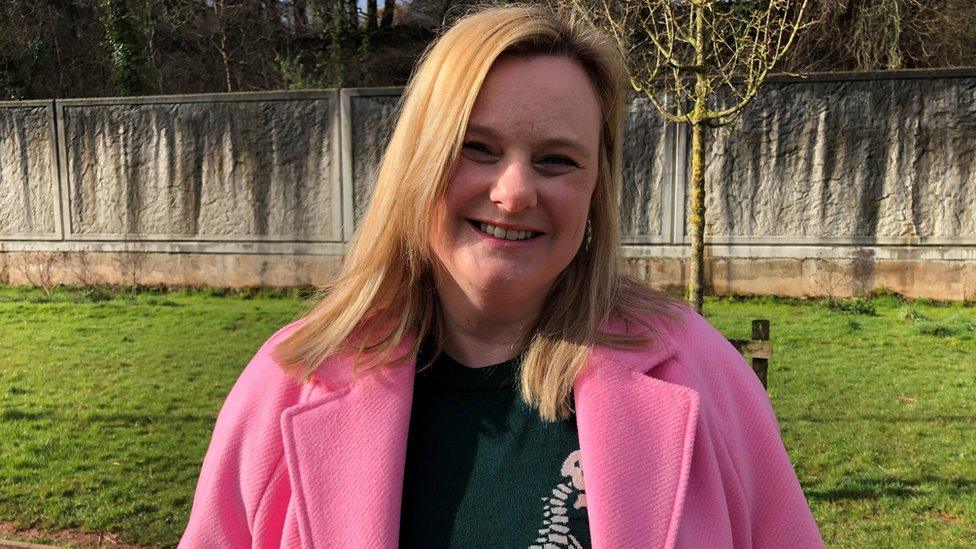
Blogger Claire Campbell-Adams wants Welsh government to offer parents advice on how to discipline their children
But one parenting blogger said it was "not as simple as 'the ban is right' or the 'ban is wrong'".
Claire Campbell-Adams of the Mum's Shoulders blog said it was "brilliant" that the ban closes "a loophole" so abusers can longer use the defence.
But she is concerned it could make it more difficult for parents who need support to open up.
"If you take away the ability to sit and chat with your peers about it because you're afraid of being prosecuted for it then how is that going to help anybody?" said Ms Campbell-Adams from Newport.
She added parents should be offered help and resources to understand how best to discipline their children.

HAYLEY PEARCE PODCAST : Tackling the issues that make your group chats go off
COMING OUT: From secrets to social media, conversations from the LGBTQ+ community in Wales

- Published21 March 2022
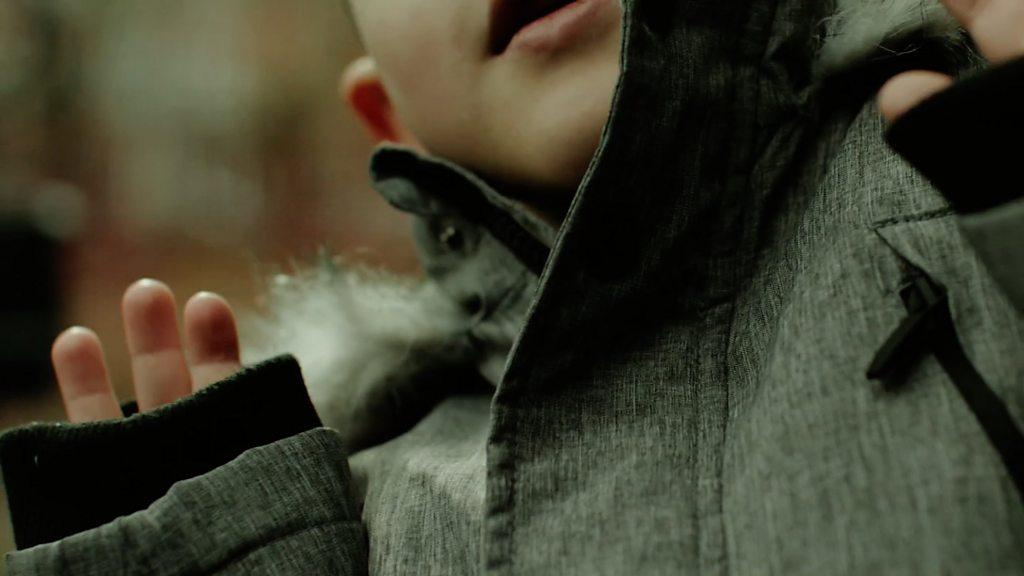
- Published21 February 2021
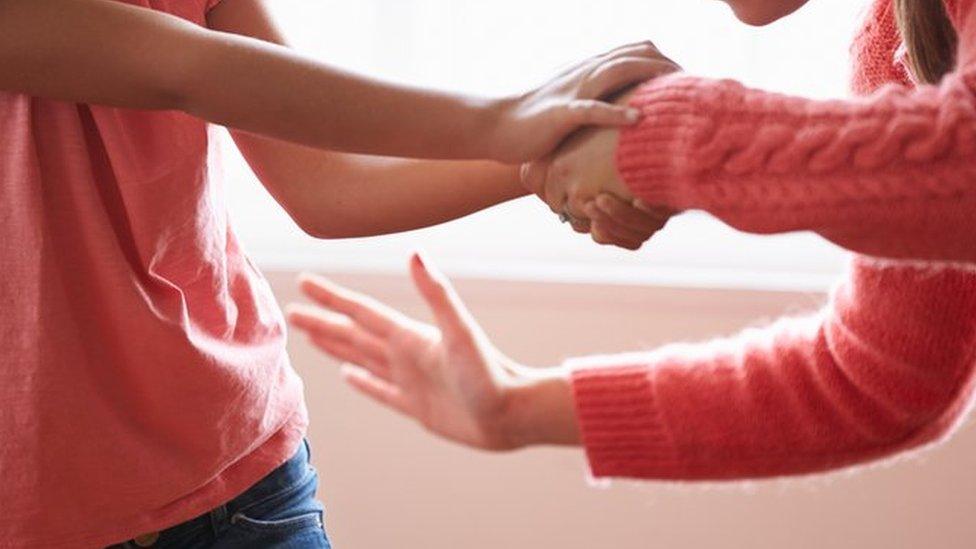
- Published28 January 2020
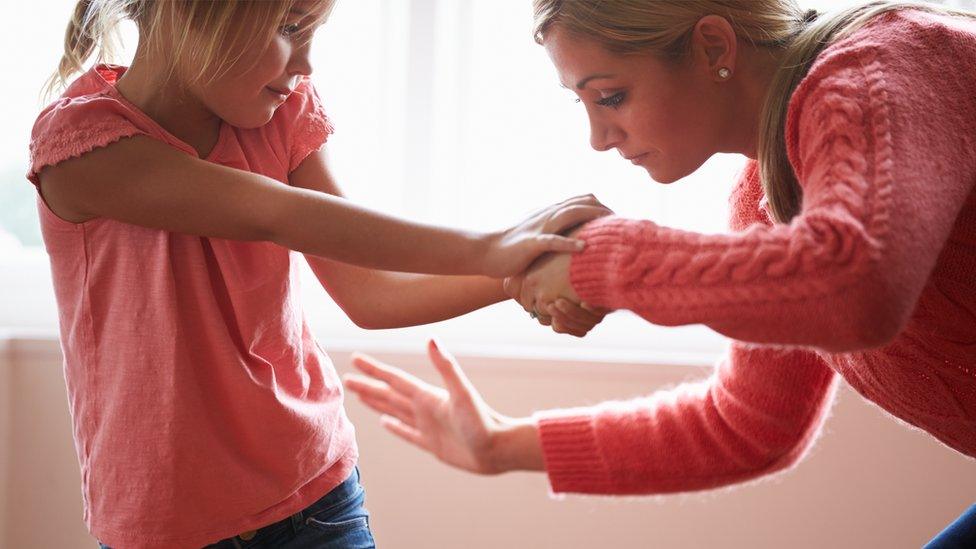
- Published7 November 2020
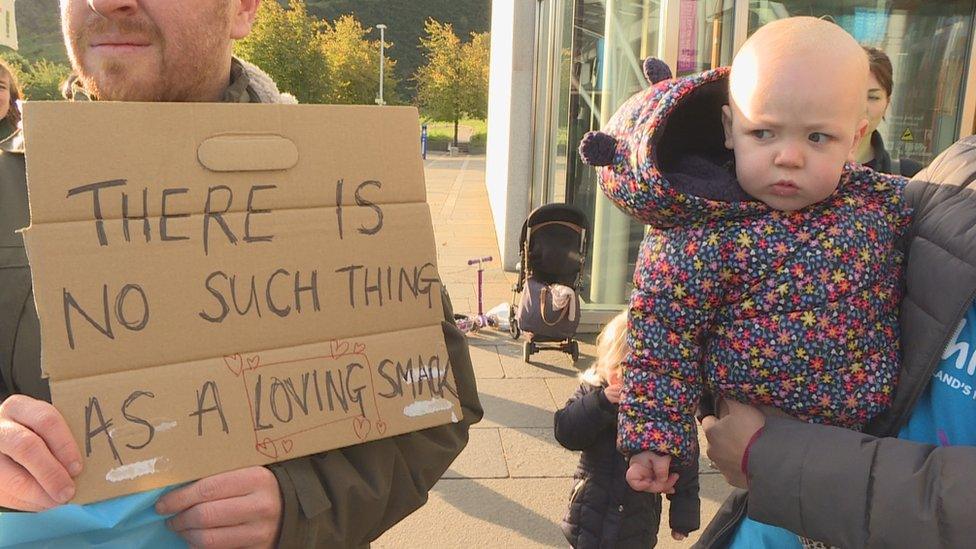
- Published3 October 2019
